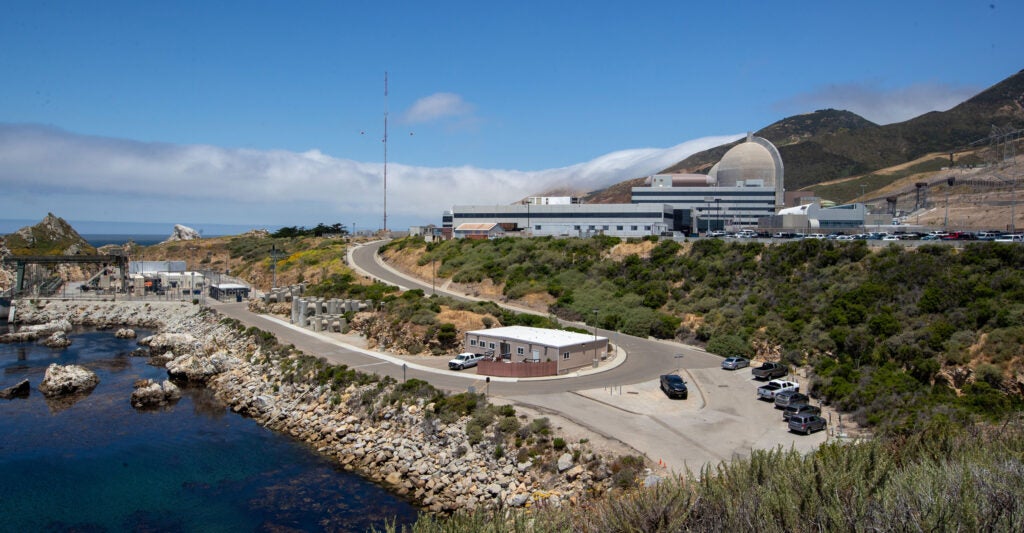On the heels of the United Nations Climate Change Conference last month in Dubai, it’s clear that nuclear energy’s role in achieving a clean energy future cannot be overlooked or understated.
At COP28, we heard from dozens of top minds in-person and from afar who echoed the same message: Transitioning to cleaner energy sources cannot come at the price of an unreliable power supply, and that is where nuclear energy comes in. Not only is it a reliable, proven technology, but it is also clean, producing zero carbon emissions. Already, the United States’ 94 nuclear power reactors generate around 18% of all U.S. electricity.
That share could grow with the U.S. and 21 other countries’ pledging at COP28 to triple nuclear energy capacity by 2050. However, achieving this lofty goal is easier said than done in the United States with our antiquated permitting and licensing processes.
Just look at Georgia. It took over a decade from project conception to get Plant Vogtle Unit Three up and running, and this was the first new nuclear reactor built in the U.S. in more than 40 years. Lawmakers and the public watched as the project hit roadblock after roadblock, hindered by overburdensome regulations and licensing hurdles that translate into ballooning costs and construction delays.
Reforming our broken permitting and licensing processes for new nuclear projects is important to incentivize investment in the most reliable form of clean energy, and progress is being made.
Earlier this year, the U.S. Senate passed Sen. Shelley Moore Capito’s, R-W.Va., bipartisan Accelerating Deployment of Versatile, Advanced Nuclear for Clean Energy (ADVANCE) Act of 2023, legislation that would boost development of new nuclear technologies and position the U.S. as the world’s leader in nuclear innovation.
Just a few weeks ago, Rep. Jeff Duncan, R-S.C., introduced the Atomic Energy Advancement Act, a comprehensive bipartisan bill that aims to update nuclear licensing and ensure efficient regulation and deployment of nuclear energy technologies. Duncan and Rep. Diana DeGette, D-Colo., even spoke about this legislation at COP28 during a panel discussion on the advancement of U.S. nuclear technology as a catalyst for lowering emissions around the world.
The bipartisan, bicameral focus on this matter proves what we know to be true: There is no clean future without nuclear energy, and America has an undeniable opportunity to lead the world in this nuclear energy renaissance.
While nuclear reactors have certainly faced an uphill PR battle, the tide is changing. Polling from this year indicates the majority of Americans, 57%, “favor more nuclear power plants to generate electricity in the country.”
This support also increases for residents who see the benefits of nuclear energy firsthand. CRES Forum polling found that Republican and independent support for nuclear power generation increased 29 and 18 percentage points, respectively, for respondents who live near a nuclear reactor and get to experience firsthand the benefits of low-cost, reliable, carbon-free power.
The United States already leads the world in emissions reduction, having decreased energy-related carbon dioxide emissions 15% since 2005, while countries like China have significantly increased their emissions with no apparent plans to slow down. Nuclear provides yet another avenue for the U.S. to build out its decarbonizing infrastructure without sacrificing much-needed affordability and reliability.
The expansion of nuclear energy in the United States is not only a chance to show American leadership and competitiveness on global stage; it is an opportunity to grow our own economy, create jobs, and provide cleaner, reliable, and affordable energy to all.
As clean energy advocates, we look forward to continuing to work with lawmakers to advance policies that will accelerate nuclear power generation here in the U.S. as we continue to lead the world.
Originally published at RealClearEnergy.com
The Daily Signal publishes a variety of perspectives. Nothing written here is to be construed as representing the views of The Heritage Foundation.
Have an opinion about this article? To sound off, please email letters@DailySignal.com, and we’ll consider publishing your edited remarks in our regular “We Hear You” feature. Remember to include the URL or headline of the article plus your name and town and/or state.
